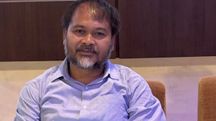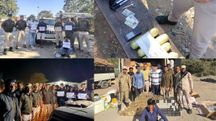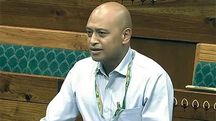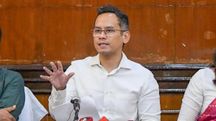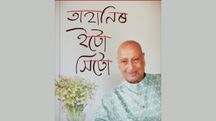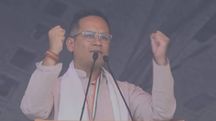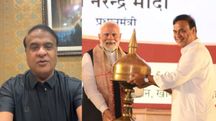Meet Dr. Abeny Khuvung, Naga beauty queen turned-political crusader for change
 Abeny Khuvung
Abeny KhuvungBy: Rana Pratap Saikia
Dr. Abeny Khuvung, the vice president of the nascent 'Rising People's Party' is an unlikely politician. Politics does not seem like a place for a 31-year-old former beauty queen from Nagaland, who is a licensed homeopathy doctor by profession. Especially in a state like Nagaland, where 100% of the State Assembly is comprised of men.
After having scorched the stage and having earned the prestigious Miss Wokha crown way back in 2013, a year when she was also the runner-up in the Miss Nagaland contest, Abeny has finally left her glamour roots behind as she aims to drive change in the hyper-conservative tribal society of Nagaland. During a short period, the Lotha-tribe girl accrued a number of impressive titles -- such as the Miss Yamaha Fascino Diva East (2014), Miss Diva, Universe finalist EAST Zone (2014), Miss Oriflame Face of North East top 5 finalist, and Body Beautiful (2017).

However, the path to fame was not always strewn with roses, as her Christian faith could have easily stood in the way of her dreams.
"I think like things that are not popular and have a lot of potential. From my Christian point of view, my participation in a beauty pageant is restricted because they have a misconception about how can a Christian be in modeling or the beauty industry. But, I think it is not wrong because as long as we know what we are doing and our focus is right, any platform can be an opportunity to serve and be a voice," she told InsideNE.
"I don't regret that phase of my life. It was short-lived, but yes, I am very happy I got good results from that opportunity. It grooms you into a better person -- to be a woman and an elegant lady."
Abeny's journey into politics has become one of the talking points ahead of Nagaland's next Assembly election and she has already become viral for her unique background.
Her foray into politics, she says, happened as she herself has been a "victim of the corrupt system."
ALSO READ: Korean actor Ji Chang-Wook’s fandom gives aid to Dimapur’s poor amid Lockdown
"Presently, we have many problems such as shortage of water supply. I personally had issues with these. People know that there is an imbalance in the system -- one of the reasons for this is the lack of women in the system."
Stating that "a lot of voices have been muffled" and women have been made, she adds that she believes that the entry of more women into politics in Nagaland will change "a lot."

"However", she adds, "there are phenomenal men who support women, and its about time they put us in positions of power. It will make difference as women think far ahead of things than men. It can benefit the Greater Naga society in general."
One of the objectives of the RPP is to ensure that a woman gets into the Assembly. Nagaland had a lone woman MP in Rano Shaiza (1977-1980) but is yet to elect one to the 60-member House. Asked if she would be has hopes of the forthcoming elections, Abeny says that she will do as the party leadership proposes.
Although she fits the role of the proverbial 'strong woman', Abeni admits that 'toxicity' has seeped into the current brand of 'feminism'.
"Feminism by definition is something that looks at men and women as equals. So going by the textbook definition, I am a feminist. But what we see today is a little bit filtered and the deviation from the actual meaning. That is why it becomes toxic. However, I support the kind of feminism that champions equality. In fact, everyone should be a feminist."
Abeny says that the coming of the Rising People's Party could possibly impart hope to the young people of the state who have apparently become 'disillusioned' with the system.
"It is the same old people who are contesting and the youth have lost trust in the old brigade. They are lacking choices and have lost enthusiasm. They are in need of young leaders who they can trust."
Asked about the rising menace of extortion and militantism in the state, she opines that these errant youth must be given viable economic activities so that they can "We have to find opportunities for these youths as anti-social activities mostly take root because of a lack of means. Create more opportunities for young people. Skill development. Alternate activities. Because without solutions how can we expect them to leave anti-social activities?"
Copyright©2025 Living Media India Limited. For reprint rights: Syndications Today
